Naval ensign
A naval ensign is an ensign (maritime flag) used by naval ships of various countries to denote their nationality. It can be the same or different from a country's civil ensign or state ensign.[1]

It can also be known as a war ensign. A large version of a naval ensign that is flown on a warship's mast just before going into battle is called a battle ensign. An ensign differs from a jack, which is flown from a jackstaff at the bow of a vessel.
Most countries have only one national flag and ensign for all purposes. In other countries, a distinction is made between the land flag and the civil, state and naval ensigns. The British ensigns, for example, differ from the flag used on land (the Union Flag) and have different versions of plain and defaced Red and Blue ensigns for civilian and state use, as well as the naval ensign (White Ensign). Some naval ensigns differ in shape from the national flag, such as the Nordic naval ensigns, which have 'tongues'.
Countries having specific naval ensigns
Naval ensigns that are different from the civil ensign and the national flag:
Historical naval ensigns
.svg.png.webp) Albania (1928–1934)
Albania (1928–1934).svg.png.webp) Albania (1946–1954)
Albania (1946–1954).svg.png.webp) Albania (1954–1958)
Albania (1954–1958).svg.png.webp) Albania (1958–1992)
Albania (1958–1992) Albania (Coast Guard)(1958–1992)
Albania (Coast Guard)(1958–1992).svg.png.webp) Argentina (1818–1820)
Argentina (1818–1820) Austria-Hungary (1786–1914)
Austria-Hungary (1786–1914).svg.png.webp) Austria-Hungary (1915–1918) - never formally flown by the navy
Austria-Hungary (1915–1918) - never formally flown by the navy Austria (1926–1934)
Austria (1926–1934) Australia (1911–1967)
Australia (1911–1967) Belgium (1941–1950)
Belgium (1941–1950).svg.png.webp) Bolivia (1966–2013)
Bolivia (1966–2013)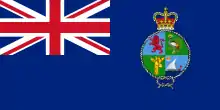 British East Africa (1953–1962)
British East Africa (1953–1962).svg.png.webp) Brunei (1984–1990)
Brunei (1984–1990).svg.png.webp) Bulgaria (1878–1944)
Bulgaria (1878–1944).svg.png.webp) Bulgaria (1949–1955)
Bulgaria (1949–1955).svg.png.webp) Bulgaria (1955–1990)
Bulgaria (1955–1990) Bulgaria (1991–2005)
Bulgaria (1991–2005).svg.png.webp) Burma (1948–1974)
Burma (1948–1974).svg.png.webp) Burma (1974–1994)
Burma (1974–1994) Byzantine Empire (1350-1453)
Byzantine Empire (1350-1453).svg.png.webp) Canada (1910-1911)
Canada (1910-1911) Canada (1911-1965)
Canada (1911-1965).svg.png.webp) Qing Dynasty (1862-1890)
Qing Dynasty (1862-1890).svg.png.webp) Republic of China (1911)
Republic of China (1911).svg.png.webp) Collaborationist China (1942-1945)
Collaborationist China (1942-1945)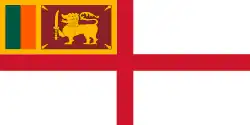 Ceylon (1950–1972)
Ceylon (1950–1972).svg.png.webp) Confederate States (1863–1865)
Confederate States (1863–1865).svg.png.webp) Croatia (1941–1944)
Croatia (1941–1944).svg.png.webp) Croatia (1944–1945)
Croatia (1944–1945)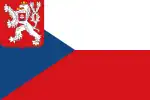 Czechoslovakia (1935–1939) (1945–1955)
Czechoslovakia (1935–1939) (1945–1955)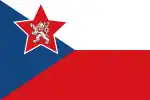 Czechoslovakia (1955–1960)
Czechoslovakia (1955–1960).svg.png.webp)
.svg.png.webp) Principality of Elba (1814–1815)
Principality of Elba (1814–1815).svg.png.webp) Ethiopia (1955–1974)
Ethiopia (1955–1974).svg.png.webp) Ethiopia (1974–1975)
Ethiopia (1974–1975).svg.png.webp) Ethiopia (1975–1996)
Ethiopia (1975–1996).svg.png.webp) Finland (1918–1920)
Finland (1918–1920).svg.png.webp) Finland (1920-1978)
Finland (1920-1978).svg.png.webp) France (?-1789, 1814–1815, 1830)
France (?-1789, 1814–1815, 1830)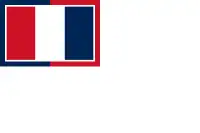 France (1790-1794)
France (1790-1794).svg.png.webp) French Algeria (1848–1910)
French Algeria (1848–1910) French Cochinchina (1868–1945)
French Cochinchina (1868–1945) French Indochina (1923-1949)
French Indochina (1923-1949).svg.png.webp) Georgia (1997–2004)
Georgia (1997–2004)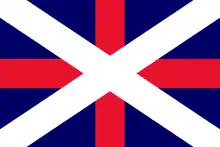 Georgia (2004-2008)
Georgia (2004-2008)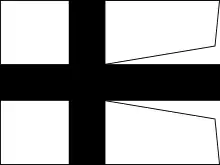 Teutonic Order (12th Century)
Teutonic Order (12th Century).svg.png.webp) Holy Roman Empire (1200-1350)
Holy Roman Empire (1200-1350) Holy Roman Empire (15th Century)
Holy Roman Empire (15th Century) Holy Roman Empire (15th Century)
Holy Roman Empire (15th Century)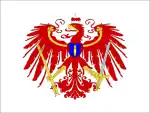 Brandenburg (1650-1694)
Brandenburg (1650-1694).svg.png.webp) Prussia (1816-1819)
Prussia (1816-1819)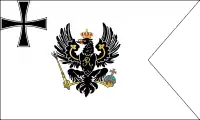 Prussia (1819–1867)
Prussia (1819–1867).svg.png.webp) German Confederation (1848–1852)
German Confederation (1848–1852).svg.png.webp) North German Confederation and later Germany (1867–1892)
North German Confederation and later Germany (1867–1892).svg.png.webp) Germany (1892–1903)
Germany (1892–1903).svg.png.webp) Germany (1903–1918)
Germany (1903–1918).svg.png.webp) Germany (1919–1921)
Germany (1919–1921).svg.png.webp) Germany (1921-1933)
Germany (1921-1933).svg.png.webp) Germany (1933–1935)
Germany (1933–1935).svg.png.webp) Germany (1935–1938)
Germany (1935–1938).svg.png.webp) Germany (1938–1945)
Germany (1938–1945) Allied-occupied Germany (1945–1947)
Allied-occupied Germany (1945–1947).svg.png.webp) East Germany (1960–1990)
East Germany (1960–1990).svg.png.webp) Ghana (1964–1966)
Ghana (1964–1966).svg.png.webp) Greece (1833-1858)
Greece (1833-1858).svg.png.webp) Greece (1858–1862)
Greece (1858–1862).svg.png.webp) Greece (1863-1924 and 1935–1970)
Greece (1863-1924 and 1935–1970)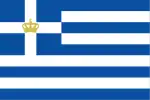 Greece (1935)
Greece (1935)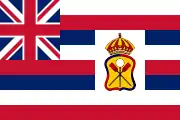 Hawaiian Kingdom (1887)
Hawaiian Kingdom (1887).svg.png.webp) Hungary (1919)
Hungary (1919).svg.png.webp) Hungary (1921–1939)
Hungary (1921–1939).svg.png.webp) Hungary (1939–1945)
Hungary (1939–1945).svg.png.webp) Hungary (1946–1948)
Hungary (1946–1948).svg.png.webp) Hungary (1948–1950)
Hungary (1948–1950).svg.png.webp) Hungary (1950–1955)
Hungary (1950–1955).svg.png.webp) Hungary (1955–1957)
Hungary (1955–1957).svg.png.webp) Hungary (1957–1991)
Hungary (1957–1991).svg.png.webp) Iceland (1918–1944)
Iceland (1918–1944)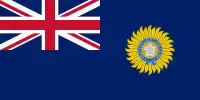 India (1879–1928)
India (1879–1928) India (1928–1950)
India (1928–1950).svg.png.webp) India (1950–2001)
India (1950–2001).svg.png.webp) India (2001–2004)
India (2001–2004).svg.png.webp) India (2004–2014)
India (2004–2014).svg.png.webp) India (2014–2022)
India (2014–2022)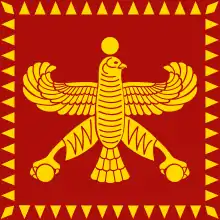 Achaemenid Empire (525 BC-330 BC)
Achaemenid Empire (525 BC-330 BC) Afsharid Empire (1736–1796)
Afsharid Empire (1736–1796).svg.png.webp) Persia (1907-1933)
Persia (1907-1933).svg.png.webp)
.svg.png.webp) Iran (1964–1979)
Iran (1964–1979).svg.png.webp) Iran (1979–1980)
Iran (1979–1980)_crowned.svg.png.webp) Italy (1861-1946)
Italy (1861-1946) Italian Social Republic (1943-1945)
Italian Social Republic (1943-1945).svg.png.webp) Italy (1947-2013)
Italy (1947-2013) Tokugawa Shogunate (1800's-1868)
Tokugawa Shogunate (1800's-1868) Japan (1889–1945)
Japan (1889–1945).svg.png.webp) Libya (1977–2011)
Libya (1977–2011).svg.png.webp) Lithuania (1927–1940)
Lithuania (1927–1940)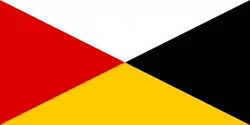 Malaya (1895–1946)
Malaya (1895–1946).svg.png.webp) Malaya (1957–1963)
Malaya (1957–1963).svg.png.webp) Malaya (1963–1968)
Malaya (1963–1968) Manchukuo (1932-1945)
Manchukuo (1932-1945) Massachusetts (1776-1780)
Massachusetts (1776-1780) Netherlands (1795–1806)
Netherlands (1795–1806) New Zealand (1941-1968)
New Zealand (1941-1968).svg.png.webp) Nigeria (1960–1998)
Nigeria (1960–1998).svg.png.webp) Norway (1844–1905)
Norway (1844–1905) Papal States (849-1878)
Papal States (849-1878) Poland (1815–1867)
Poland (1815–1867).svg.png.webp) Poland (1919-1928)
Poland (1919-1928) Poland (River Fleet) (1930-1938)
Poland (River Fleet) (1930-1938) Poland (River Fleet) (1938-1939)
Poland (River Fleet) (1938-1939).svg.png.webp) Poland (1946–1993)
Poland (1946–1993) Poland (Auxiliary ships) (1955–1996)
Poland (Auxiliary ships) (1955–1996) Poland (Coast Guard) (1953–1990)
Poland (Coast Guard) (1953–1990).svg.png.webp) Portugal (1830-1911)
Portugal (1830-1911).svg.png.webp) Romania (1922-1947)
Romania (1922-1947).png.webp) Romania (1948–1952)
Romania (1948–1952).svg.png.webp) Romania (1952–1965)
Romania (1952–1965).svg.png.webp) Romania (1965–1989)
Romania (1965–1989).svg.png.webp) Sardinia (1785–1802)
Sardinia (1785–1802).svg.png.webp) Sardinia (1802-1814)
Sardinia (1802-1814)_aspect_ratio_31-76.svg.png.webp) Sardinia (1816–1848)
Sardinia (1816–1848) South Africa (1922-1946)
South Africa (1922-1946).svg.png.webp) South Africa (1946–1951)
South Africa (1946–1951).svg.png.webp) South Africa (1951–1952)
South Africa (1951–1952).svg.png.webp) South Africa (1952–1959)
South Africa (1952–1959).svg.png.webp) South Africa (1959–1981)
South Africa (1959–1981).svg.png.webp) South Africa (1981–1994)
South Africa (1981–1994).svg.png.webp) South Africa (1994–1998)
South Africa (1994–1998) South Vietnam (1954–1975)
South Vietnam (1954–1975) Spain (1701-1785)
Spain (1701-1785).svg.png.webp) Spanish Etiquette ensign (1701-1760)
Spanish Etiquette ensign (1701-1760).svg.png.webp) Spanish Etiquette ensign (1760-1785)
Spanish Etiquette ensign (1760-1785).svg.png.webp) Russian Soviet Socialist Republic (1920-1923)
Russian Soviet Socialist Republic (1920-1923).svg.png.webp) Soviet Union (1924–1935)
Soviet Union (1924–1935).svg.png.webp) Soviet Union (1935–1950)
Soviet Union (1935–1950).svg.png.webp) Russia (1992-2000)
Russia (1992-2000) Soviet Union (naval auxiliary ships) (1924–1935)
Soviet Union (naval auxiliary ships) (1924–1935) Soviet Union (naval auxiliary ships) (1935–1950)
Soviet Union (naval auxiliary ships) (1935–1950) Soviet Union (naval auxiliary ships) (1950-1992)
Soviet Union (naval auxiliary ships) (1950-1992) Russia (naval auxiliary ships) (1992-2000)
Russia (naval auxiliary ships) (1992-2000) Soviet Union (Coast Guard) (1924–1935)
Soviet Union (Coast Guard) (1924–1935) Soviet Union (coast Guard) (1935–1950)
Soviet Union (coast Guard) (1935–1950) Soviet Union (Coast Guard) (1950-1993)
Soviet Union (Coast Guard) (1950-1993).svg.png.webp) Serbia (1882–1918)
Serbia (1882–1918).svg.png.webp) Sudan (1956–1970)
Sudan (1956–1970).svg.png.webp) Sweden (1815–1844)
Sweden (1815–1844).svg.png.webp) Sweden (1844–1905)
Sweden (1844–1905).svg.png.webp) Siam (1910-1917)
Siam (1910-1917) Republic of Texas (1836–1838)
Republic of Texas (1836–1838)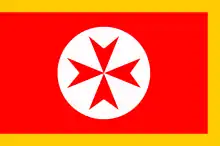 Grand Duchy of Tuscany (1500's-1737)
Grand Duchy of Tuscany (1500's-1737).svg.png.webp) Tuscany (1737-1749)
Tuscany (1737-1749).svg.png.webp) Ukrainian People's Republic (1917–1921)
Ukrainian People's Republic (1917–1921).svg.png.webp) Ukrainian State (1918)
Ukrainian State (1918).svg.png.webp) Ukrainian State (1918-1920)
Ukrainian State (1918-1920)
 Ukraine (1994–1997)
Ukraine (1994–1997) Ukraine (Sea Guard) (1993-2001)
Ukraine (Sea Guard) (1993-2001) United Arab Republic (1958–1971)
United Arab Republic (1958–1971)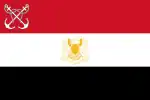 Federation of Arab Republics (1972–1977)
Federation of Arab Republics (1972–1977)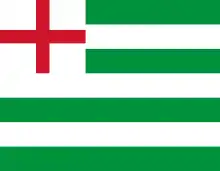 Tudor Ensign (1485–1603)
Tudor Ensign (1485–1603)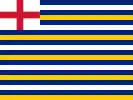 Stuart Ensign (1620)
Stuart Ensign (1620) England (1620–1702)
England (1620–1702) Commonwealth of England (1649–1660)
Commonwealth of England (1649–1660)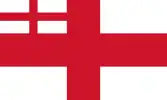 White Squadron Ensign (1702–1707)
White Squadron Ensign (1702–1707) Kingdom of Scotland (1603-1707)
Kingdom of Scotland (1603-1707).svg.png.webp) Great Britain (1707–1800)
Great Britain (1707–1800) Serapis flag (1779)
Serapis flag (1779) Republic of Venice (1400's-1797)
Republic of Venice (1400's-1797)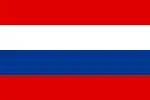 State of Slovenes, Croats, and Serbs and later Yugoslavia (1918-1922)
State of Slovenes, Croats, and Serbs and later Yugoslavia (1918-1922) Yugoslavia (1922–1945)
Yugoslavia (1922–1945).svg.png.webp) Yugoslavia (1942)
Yugoslavia (1942).svg.png.webp) Yugoslavia (1942-1944)
Yugoslavia (1942-1944).svg.png.webp) Yugoslavia (1943–1949)
Yugoslavia (1943–1949).svg.png.webp) Yugoslavia (1949–1992)
Yugoslavia (1949–1992) Yugoslavia and later Serbia and Montenegro (1993–2006)
Yugoslavia and later Serbia and Montenegro (1993–2006)
References
- "The Flag Bulletin". Flag Research Center. January 9, 1980 – via Google Books.



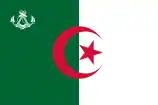
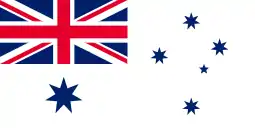

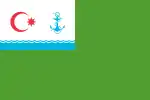










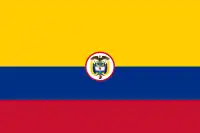






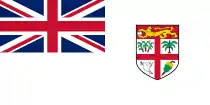
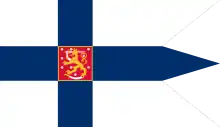

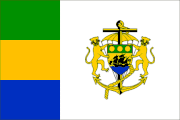




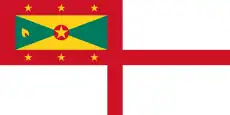
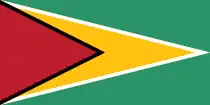
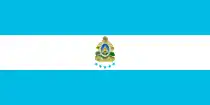
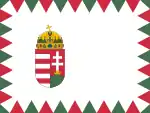
.svg.png.webp)

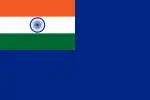



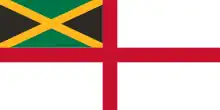
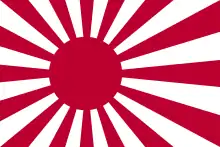

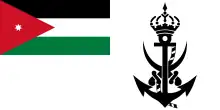

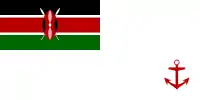


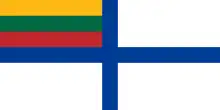



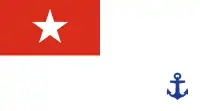
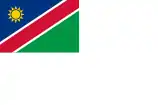
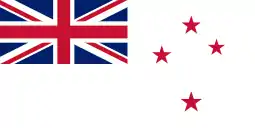





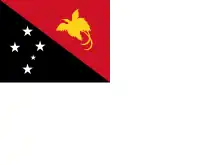
.svg.png.webp)






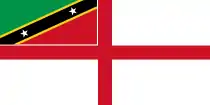

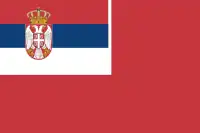



.svg.png.webp)

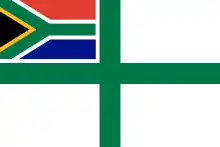

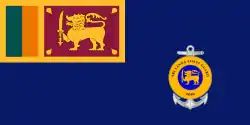

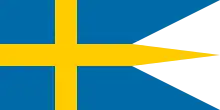
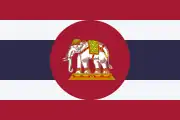
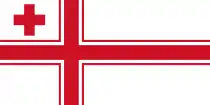




.svg.png.webp)






